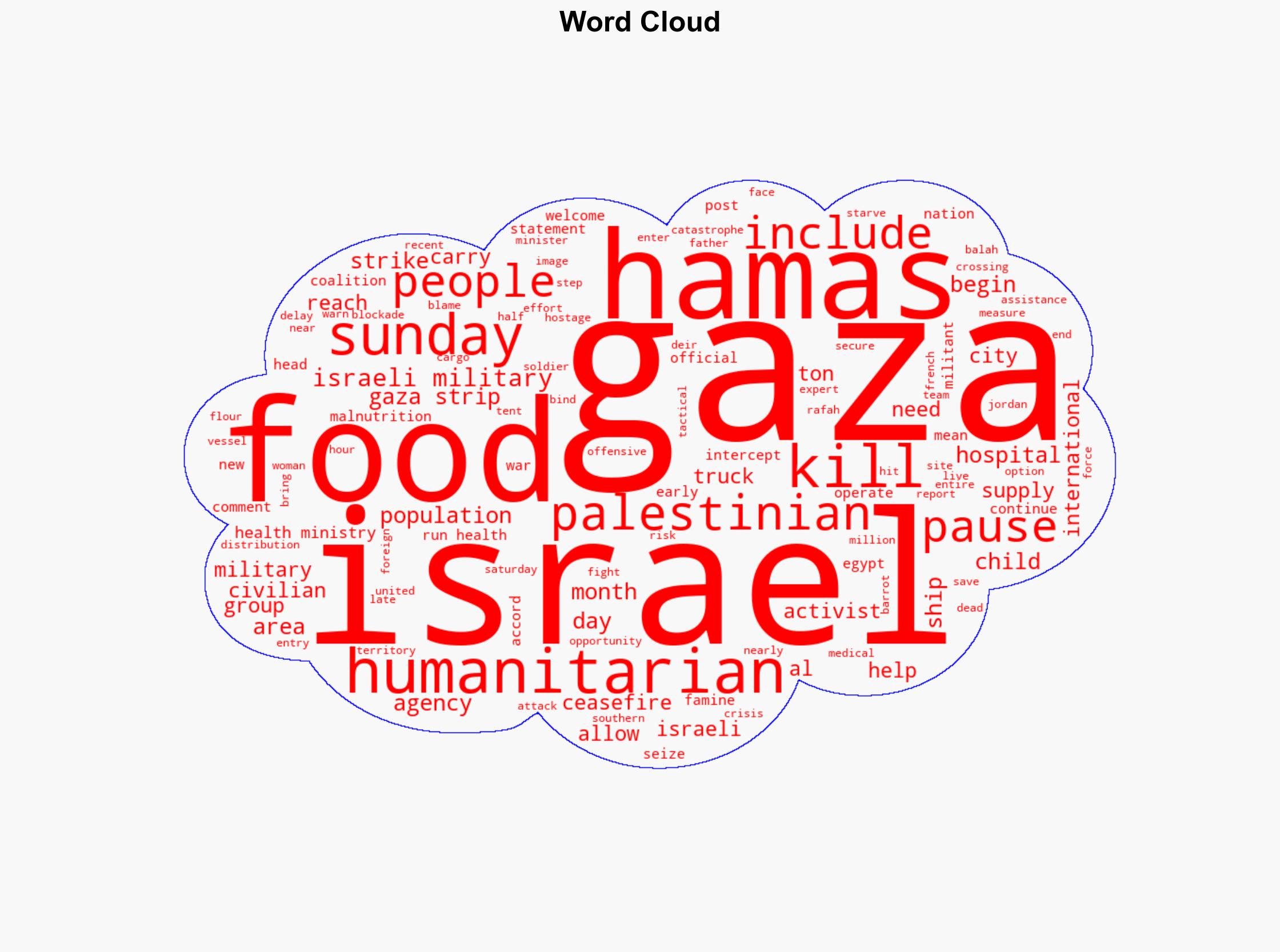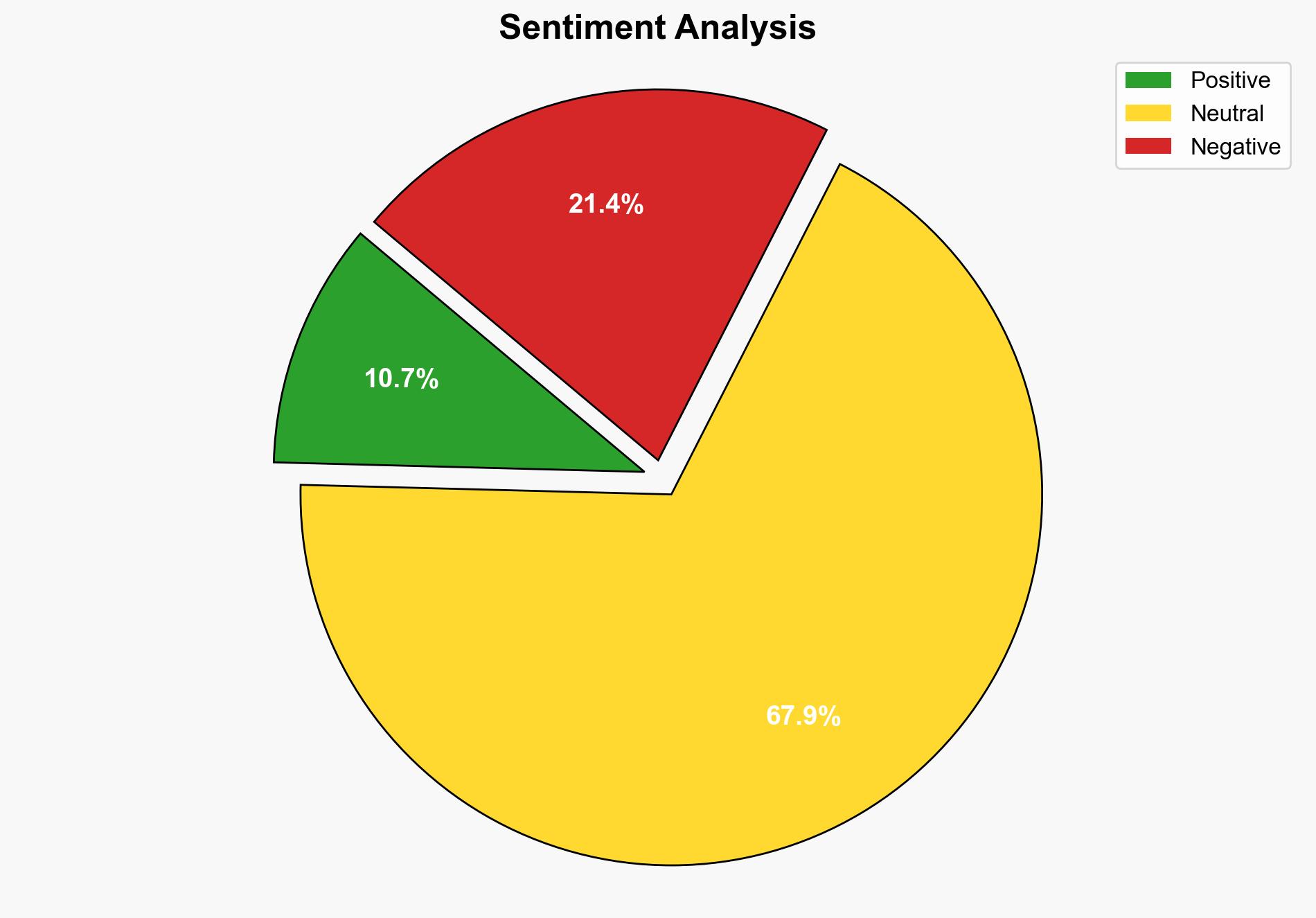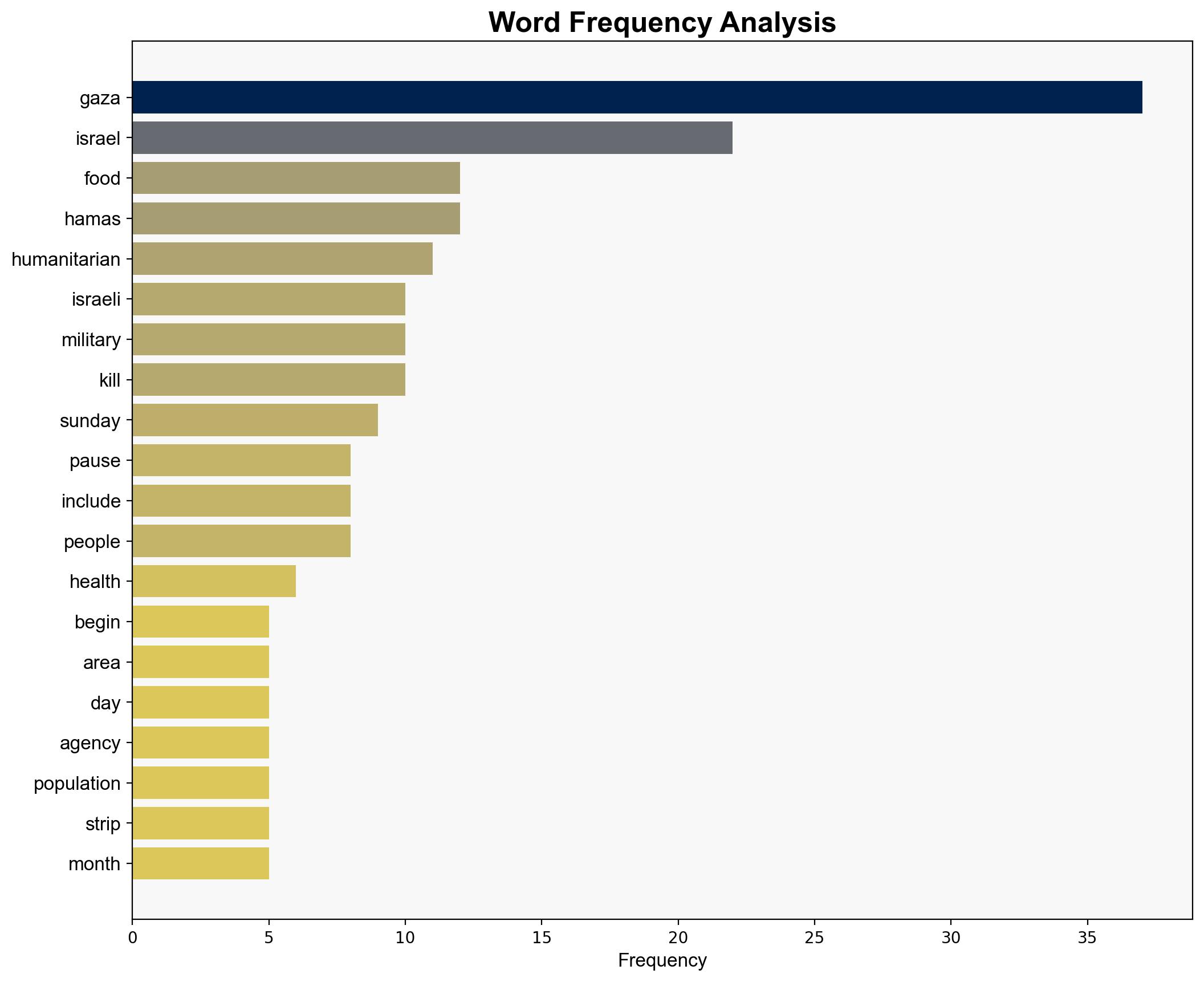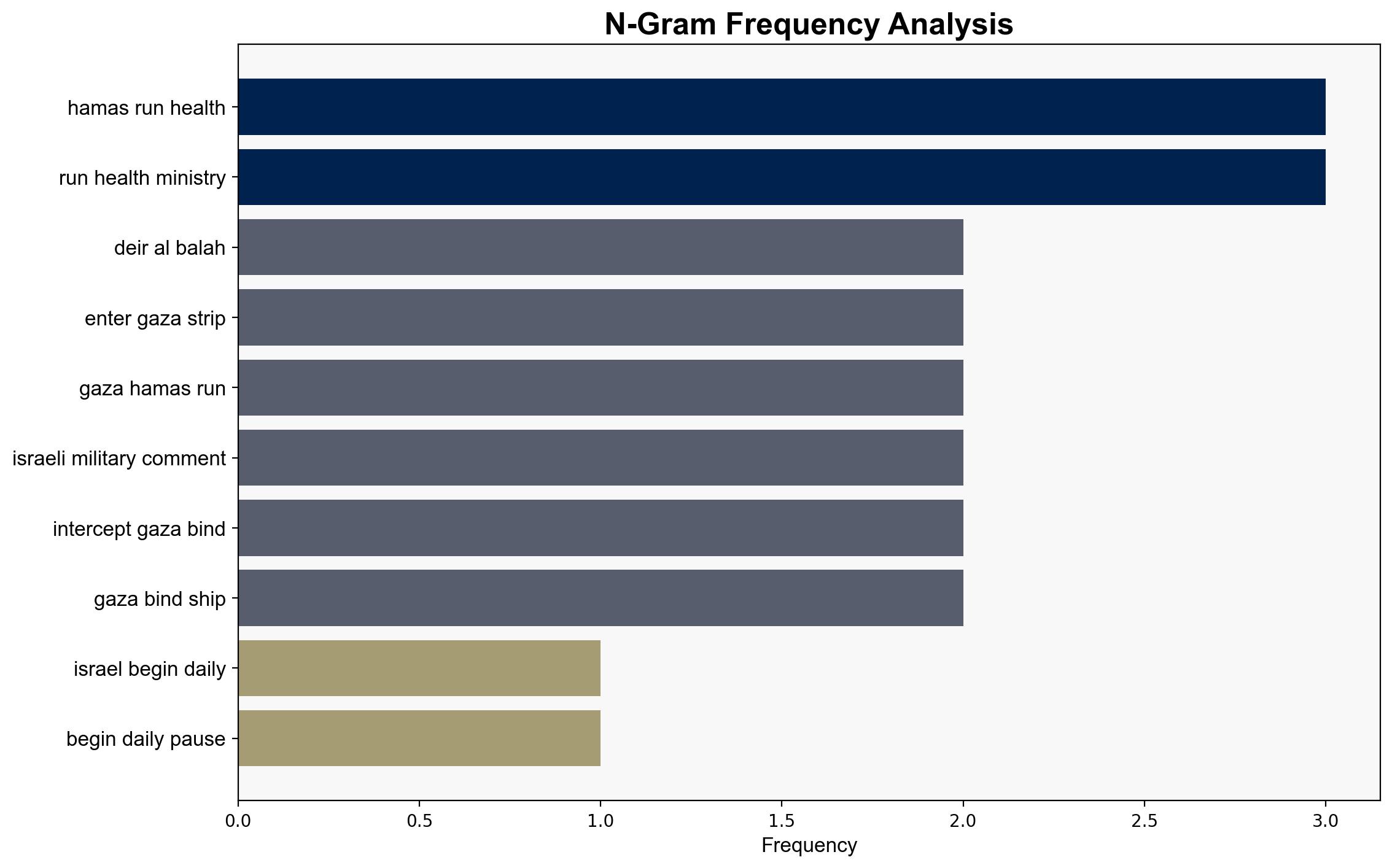Israel commits to pause in fighting in parts of Gaza amid starvation outrage – CBS News
Published on: 2025-07-27
Intelligence Report: Israel commits to pause in fighting in parts of Gaza amid starvation outrage – CBS News
1. BLUF (Bottom Line Up Front)
The most supported hypothesis suggests that Israel’s tactical pause in Gaza is primarily a strategic maneuver to mitigate international criticism and humanitarian pressure, rather than a genuine shift towards peace. Confidence in this assessment is moderate due to the complexity of the situation and limited transparency. It is recommended to closely monitor the humanitarian aid flow and international diplomatic responses to gauge future developments.
2. Competing Hypotheses
Hypothesis 1: Israel’s pause in fighting is a strategic response to international pressure and criticism over humanitarian conditions in Gaza, aimed at reducing global backlash while maintaining military objectives against Hamas.
Hypothesis 2: The pause represents a genuine shift towards addressing humanitarian needs in Gaza, indicating potential openness to broader ceasefire negotiations.
Using ACH 2.0, Hypothesis 1 is better supported by the evidence of ongoing military operations against Hamas and the limited scope of the humanitarian pause. Hypothesis 2 is less supported due to the absence of broader ceasefire discussions and continued military activities.
3. Key Assumptions and Red Flags
– **Assumptions**: It is assumed that Israel’s actions are primarily driven by external diplomatic pressures rather than internal policy shifts. The assumption that humanitarian aid will effectively reach those in need without diversion is also critical.
– **Red Flags**: The lack of transparency in aid distribution and the potential for Hamas to exploit the situation for propaganda are significant concerns. The absence of clear commitments to a broader ceasefire raises doubts about the long-term intentions.
4. Implications and Strategic Risks
The temporary pause may alleviate immediate humanitarian concerns but risks being perceived as a superficial measure if not followed by substantive peace efforts. Continued military operations could escalate tensions, potentially drawing in regional actors and complicating international diplomatic efforts. The economic impact on Gaza remains severe, with potential long-term destabilization if humanitarian needs are not adequately addressed.
5. Recommendations and Outlook
- Monitor the flow and distribution of humanitarian aid to ensure it reaches intended recipients and assess the impact on local conditions.
- Engage in diplomatic efforts to encourage broader ceasefire negotiations, leveraging international pressure and humanitarian concerns.
- Scenario Projections:
- Best Case: The pause leads to sustained humanitarian relief and initiates broader peace talks.
- Worst Case: The pause is exploited by Hamas, leading to renewed hostilities and increased regional instability.
- Most Likely: The pause temporarily reduces international criticism but fails to lead to significant policy changes.
6. Key Individuals and Entities
– Benjamin Netanyahu
– Jeannol Barrot
– Tom Fletcher
– Muneer al Boursh
7. Thematic Tags
national security threats, humanitarian crisis, regional stability, international diplomacy





